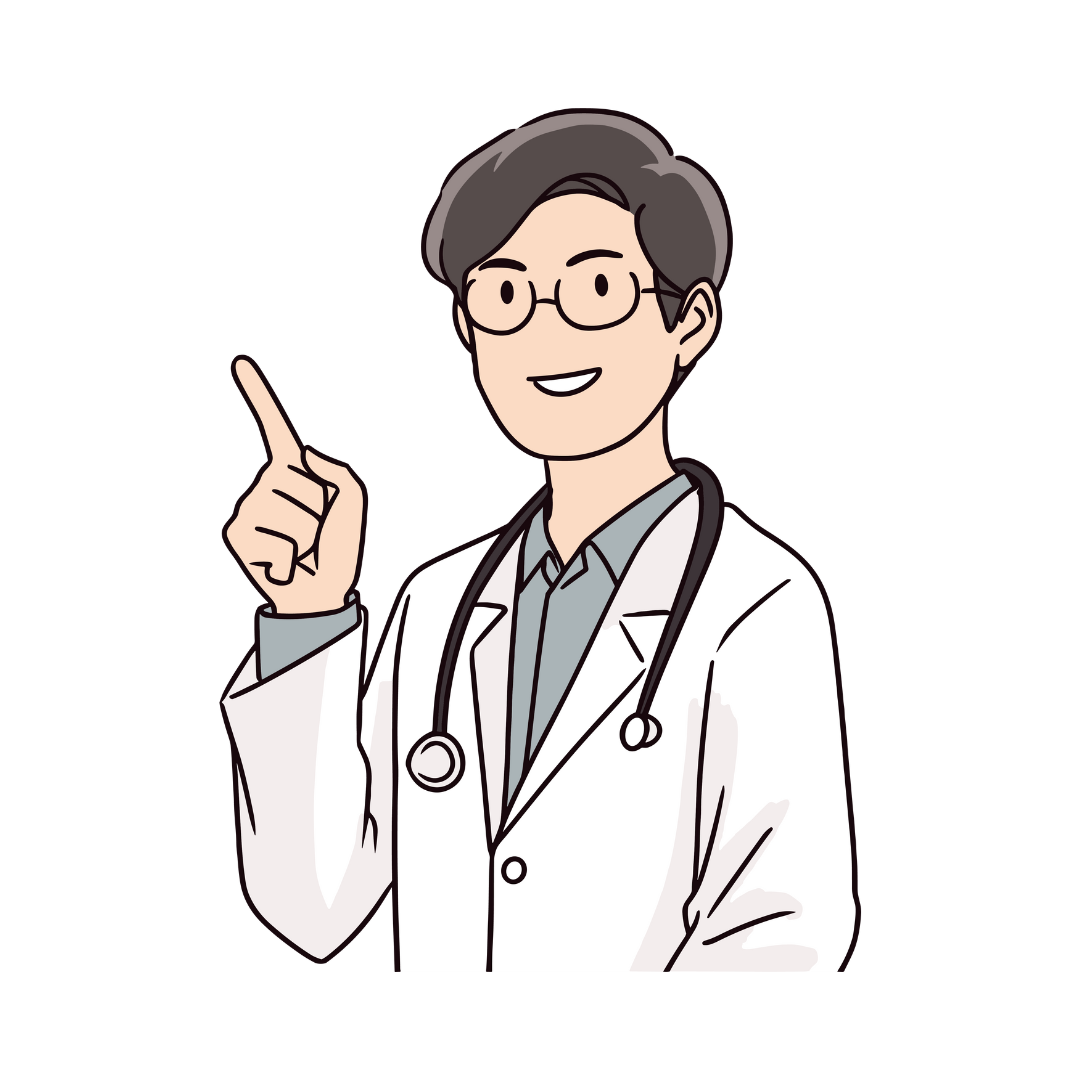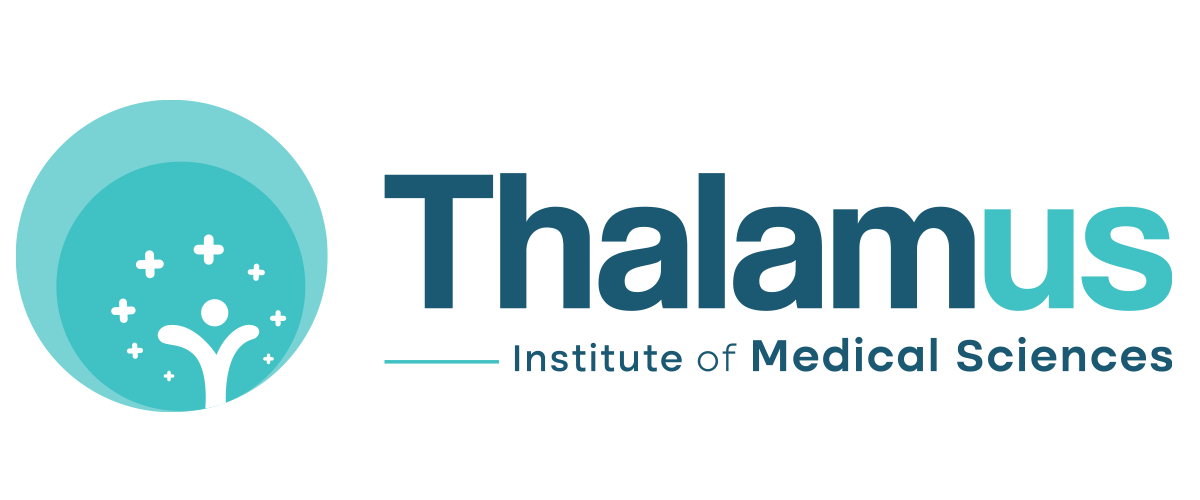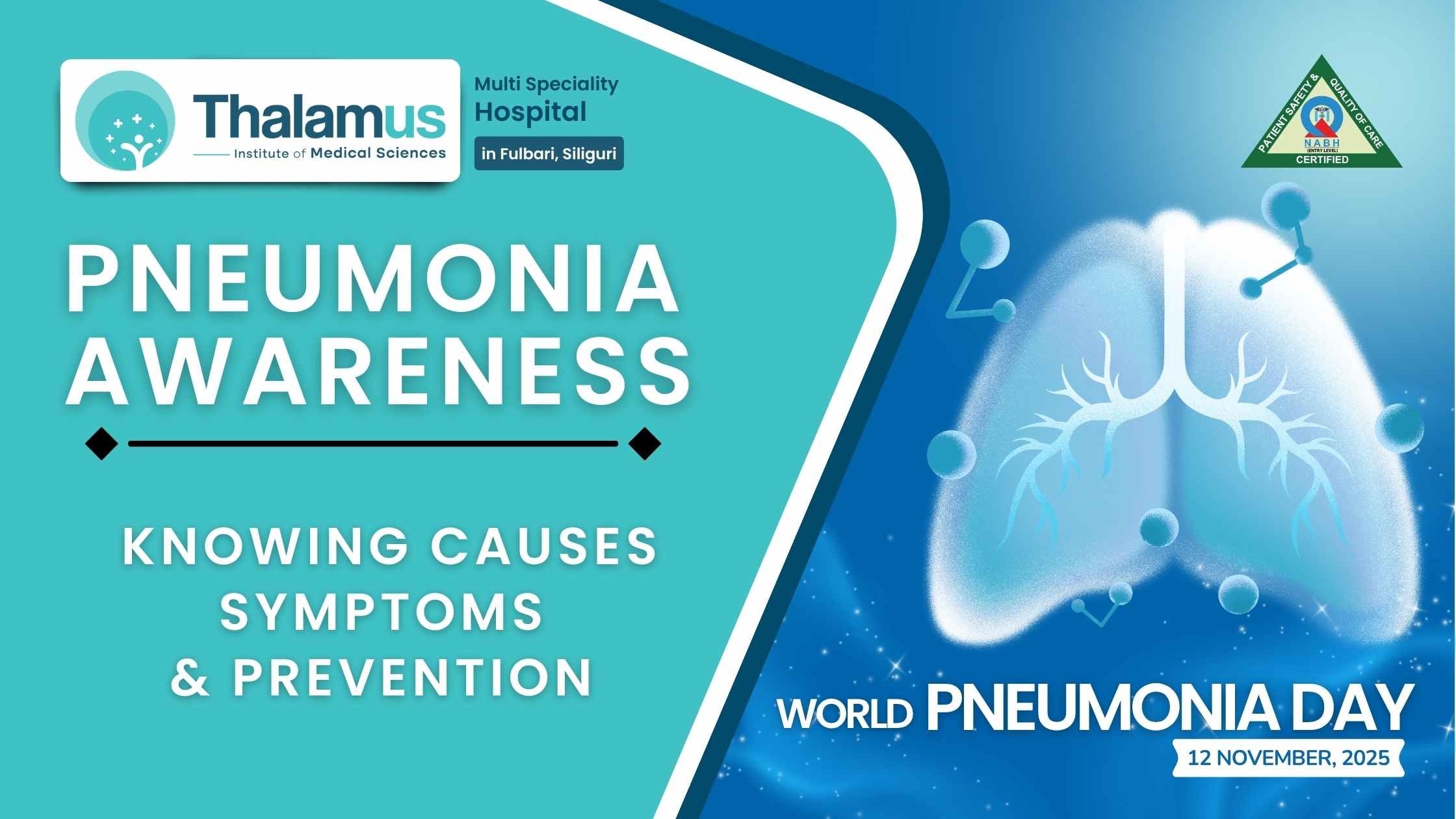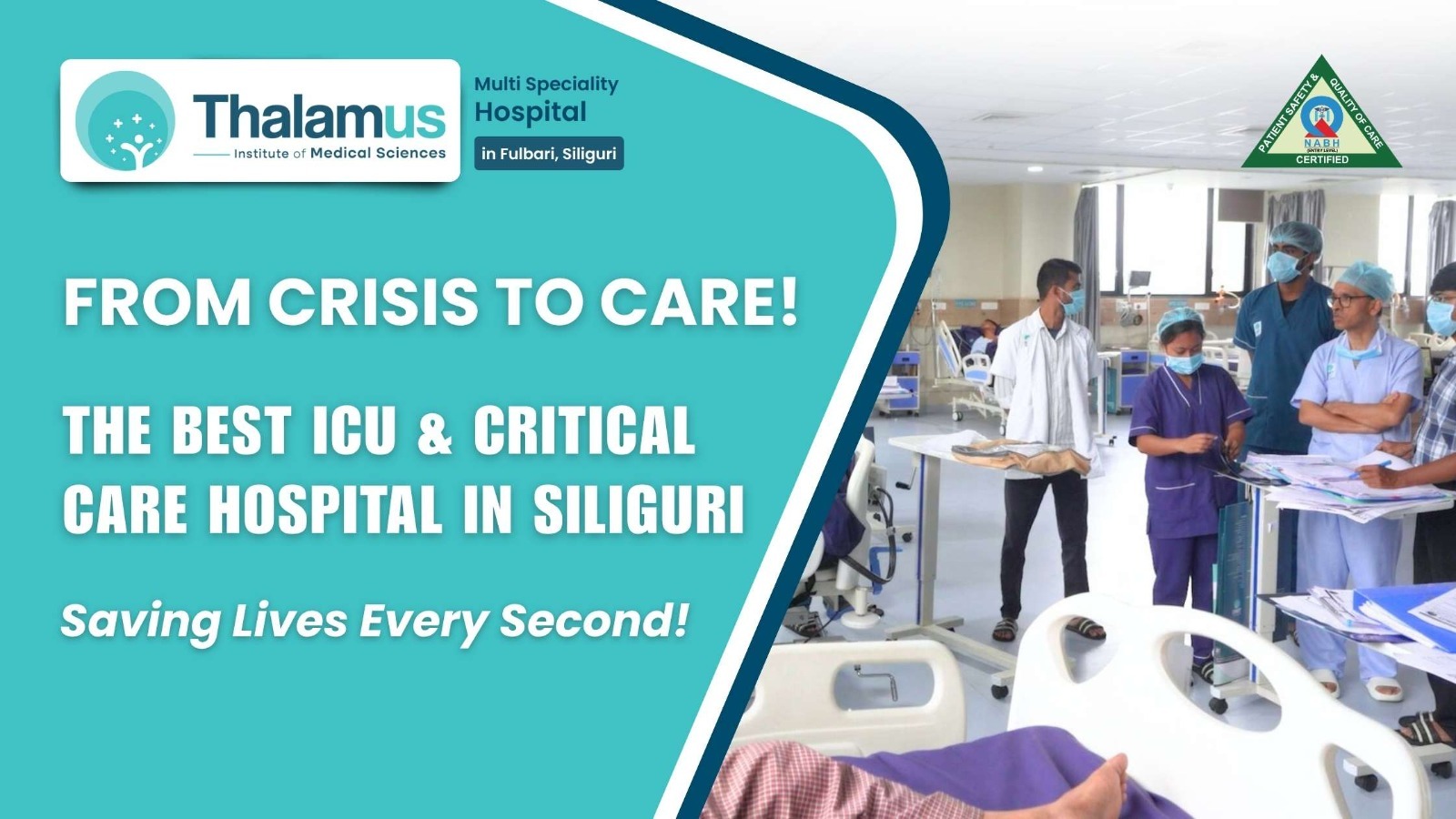blogs & News-> Blogs-> World Stroke Day 2025: Act FAST, Save Lives with the Best Multispeciality Hospital in Siliguri!-> The World Stroke Organization established this day...
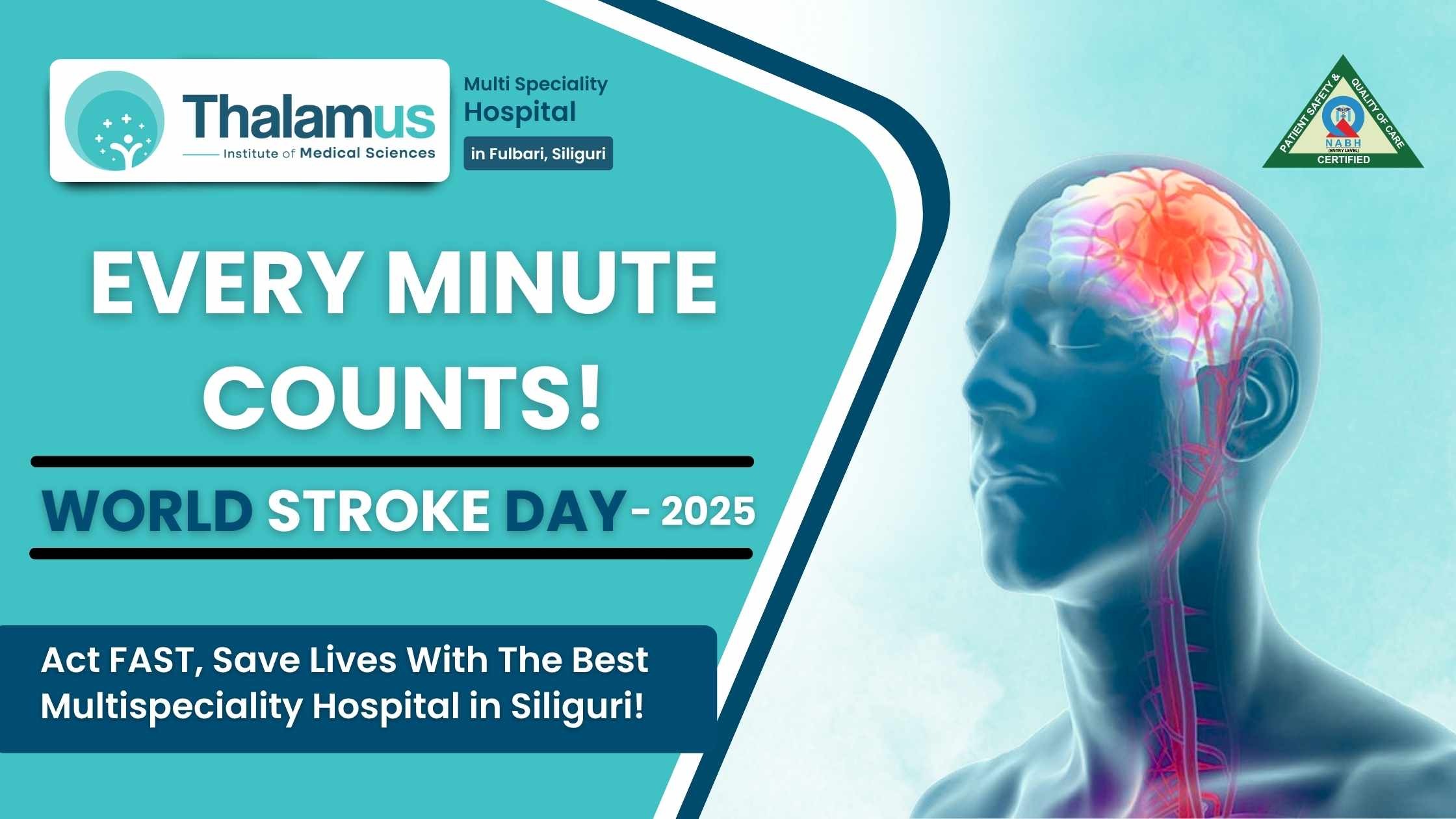
World Stroke Day 2025: Act FAST, Save Lives with the Best Multispeciality Hospital in Siliguri!
Category: Blog | Published By: Thalamus Institute of Medical Sciences | Created: 1 week ago
World Stroke Day 2025: Insights from the Best Multispeciallity Hospital in Siliguri!
Every Minute Counts:
In a world that moves with the speed of thought, there are moments when thought itself halts — suddenly, silently, and devastatingly. That’s what a stroke does. It stops the rhythm of life without warning, turning seconds into struggles and moments into memories of what once was.
World Stroke Day, observed every year on October 29, stands as a global reminder that every minute counts — not only for saving lives but for saving the very essence of human existence: the ability to speak, walk, feel, and dream.
Through this blog, the best multispeciality hospital in Siliguri sheds light on crucial aspects of stroke, aiming to spread awareness and prevent its rising rate.
What is a stroke?
A stroke occurs when blood flow to a part of the brain is interrupted, either by a clot (ischemic stroke) or by bleeding (hemorrhagic stroke). Without oxygen, brain cells begin to die within minutes, leading to potential disability or death.
What is the difference between a stroke and a heart attack?
A heart attack affects the heart, while a stroke affects the brain. Both are caused by interrupted blood flow, but the consequences and symptoms differ — heart attacks cause chest pain, while strokes lead to weakness, speech difficulty, and facial drooping.
Why is October 29 Special?
The World Stroke Organization established this day to shed light on one of the most pressing global health concerns — stroke. What started as a movement in 2006 has today become a worldwide call to action. Across nations — from India’s small towns to the world’s largest cities — hospitals, NGOs, and governments unite to conduct health camps, awareness drives, and community screenings.
In India too, this day carries immense importance. It reminds us that awareness saves lives. Every October 29, medical institutions like Thalamus Institute of Medical Sciences (TIMS), recognized as one of the best multispeciality hospitals in Siliguri, join hands with the community to promote early recognition, prevention, and prompt treatment of stroke.
Theme of World Stroke Day 2025:
The theme of World Stroke Day 2025, “Every Minute Counts”, echoes a simple but urgent truth — time lost is brain lost. The campaign also emphasizes the need to Act FAST, encouraging the public to recognize stroke symptoms and seek immediate help.
Every minute:
- 30 people experience their first stroke.
- 1.9 million brain cells die.
Each moment saved through awareness can be the difference between recovery and lifelong disability.
History and Global Significance:
The idea of commemorating a global stroke awareness day was proposed in 2006, when global health leaders realized the urgent need for a unified voice against stroke. Since then, World Stroke Day has evolved into a worldwide movement emphasizing prevention, rapid treatment, and rehabilitation.
In countries like India, where awareness and access to care remain uneven, this day is even more vital. Public events, street plays, health check-up camps, and educational sessions are organized to reach people at every level of society. The mission is simple yet profound: to ensure that no one remains unaware of what a stroke is and how to respond to it.
STROKE - The Silent Global Epidemic:
It’s truly alarming to know that every year, 12 million people worldwide experience a stroke — that’s one every two seconds. Strokes do not discriminate; they strike suddenly and without warning. The real tragedy lies in the fact that most strokes are preventable.
When a stroke hits, blood flow to the brain is cut off, depriving brain cells of oxygen. Every passing minute without treatment means 1.9 million brain cells die. The longer the delay, the greater the damage — leaving survivors struggling to walk, talk, or live independently.
Statistically, one in every two stroke victims dies, and two-thirds of survivors are left with long-term disabilities. These are not just numbers; they’re lives — mothers, fathers, siblings, and friends — each with stories interrupted by seconds that mattered.
When someone recognizes the signs of stroke and calls emergency services instantly, they don’t just save a life — they save the possibility of a complete recovery. That’s why awareness is the most powerful medicine of all.
Understanding the FAST Method:
It is essential to recognise the symptoms of stroke so that we can save lives. To make recognition easier, the FAST acronym is used globally:
F – Face drooping: Does one side of the face feel numb or droop when smiling?
A – Arm weakness: Is one arm weak or drifting downward when both are raised?
S – Speech difficulty: Is speech slurred, strange, or hard to understand?
T – Time to call emergency services: Don’t wait. Every minute counts.
This simple way has saved countless lives and remains the cornerstone of stroke awareness campaigns across the globe.
The Golden Hour: A Race Against Time
The term “Golden Hour of Stroke” refers to the first 60 minutes after symptoms begin. Within this hour lies the power to decide the outcome — life or death, recovery or disability.
Here's how the golden hour breaks down:
- 0–10 minutes: The patient arrives at the emergency room and undergoes initial evaluation.
- 15–25 minutes: CT or MRI scans are performed to identify the type of stroke.
- 45–60 minutes: Doctors initiate treatment, which may include clot-dissolving medication or surgery.
Every moment within this golden hour can alter destiny. For this reason, reaching the best multispeciality hospital in Siliguri, can make an enormous difference in survival and recovery rates.
Why TIMS is the Best Multispeciality Hospital in Siliguri?
In stroke care, timing and technology go hand in hand. Thalamus Institute of Medical Sciences (TIMS) in Siliguri combines both, making it the best multispeciality hospitals in Siliguri for stroke emergencies.
What sets TIMS apart in Stroke Care?
- 24×7 Emergency & Critical Care Unit: Stroke can strike anytime. The emergency team at Thalamus Institute of Medical Sciences in Siliguri operates round the clock with dedicated specialists ready to respond instantly.
- Advanced Neuroimaging Facilities: Equipped with high-resolution CT and MRI scans, Thalamus Institute of Medical Sciences in Siliguri ensures accurate diagnosis within minutes.
- Experienced Neurology and Neurosurgery Team: The hospital boasts seasoned experts who can perform swift evaluations and life-saving interventions.
- Rapid Response Protocols: Thalamus Institute of Medical Sciences in Siliguri follows the “Golden Hour Protocol,” ensuring treatment begins within the shortest possible time frame.
- Comprehensive Rehabilitation: Recovery doesn’t end after treatment. Thalamus Institute of Medical Sciences, widely known as the best multispeciality hospital in Siliguri, provides physiotherapy, occupational therapy, and counseling to help stroke survivors regain independence and confidence.
This holistic, compassionate, and technologically advanced approach makes TIMS a beacon of hope for those in need of urgent neurological and neurosurgical care.
Key Awareness Goals of World Stroke Day 2025:
World Stroke Day is more than a campaign — it’s a call for collective responsibility. The global and local awareness drives aim to:
- Educate the public on the early warning signs of stroke.
- Encourage prevention through healthy lifestyle choices — balanced diet, regular exercise, and routine health check-ups.
- Empower survivors with access to rehabilitation and emotional support.
- Promote inclusivity by creating educational posters and visuals that reach even those with limited literacy.
Each initiative is a step toward building a world where no stroke goes unnoticed and no patient goes untreated.
Causes of Stroke:
While some strokes occur suddenly, the risks build quietly over time. The most common causes include:
- High blood pressure (hypertension)
- Smoking and alcohol consumption
- Obesity and sedentary lifestyle
- Diabetes and high cholesterol
- Heart diseases or blood clotting disorders
By identifying and managing these risk factors early, individuals can greatly reduce their likelihood of experiencing a stroke.
How to Prevent a Stroke:
Prevention is not only possible — it’s powerful. Here’s how:
- Monitor blood pressure regularly and manage it through medication if needed.
- Maintain a healthy diet low in salt, sugar, and saturated fats.
- Quit smoking and limit alcohol consumption.
- Exercise regularly — even a brisk 30-minute walk daily helps.
- Manage stress through mindfulness, yoga, or relaxation techniques.
Your body gives you warnings — it’s time we start listening to them. Go for annual health check-ups at the best multispeciality hospital in Siliguri.
The Role of Community and Healthcare Institutions:
Healthcare institutions like Thalamus Institute of Medical Sciences, recognized as the best multispeciality hospital in Siliguri, take active roles in community outreach. Their awareness campaigns and stroke care initiatives ensure that people not only get timely medical help but also receive continued support in recovery.
Remembering the Message:
Every second after a stroke begins is a race against time. Awareness, quick recognition, and immediate hospital response can mean the difference between life and loss.
As we observe World Stroke Day 2025, let us all take a moment to remember the message — Every Minute Counts. Educate yourself, educate others, and never ignore the signs.
If you or someone around you shows signs of a stroke, don’t wait. Call emergency services immediately and rush to the best multispeciality hospital in Siliguri, where expert neurologists and critical care teams stand ready — because saving time means saving life.
FAQs:
1. What is the golden hour of stroke?
The first 60 minutes after stroke symptoms appear. Immediate treatment during this time can prevent brain damage, reduce disability, and improve survival chances.
2. When is World Stroke Day celebrated?
World Stroke Day is celebrated on October 29 every year to raise awareness and promote prevention and treatment of stroke.
3. What is the mortality rate of stroke in India?
In India, stroke contributes to nearly one-third of all cardiovascular deaths, with an estimated mortality rate of around 25–30% among hospitalized patients.
4. What is the mortality rate of stroke worldwide?
Globally, stroke is the second leading cause of death, responsible for around 11% of total deaths, according to the World Health Organization.
5. How can stroke be prevented?
By managing blood pressure, eating healthy, quitting smoking, staying active, and going for regular check-ups at the best multispeciality hospital in Siliguri.
6. What should be done once a stroke occurs?
Call emergency services immediately and rush to the best multispeciality hospital in Siliguri for immediate evaluation and treatment.
7. How to find the best hospital in Siliguri for stroke patients?
Choose a hospital with 24×7 emergency services, advanced neuroimaging, and specialized neurologists — all of which are available at Thalamus Institute of Medical Sciences (TIMS), widely recognised as the best multispeciality hospital in Siliguri.
8. Can stroke patients recover fully?
Yes. With timely treatment, proper rehabilitation, and ongoing care, many stroke survivors regain significant function and lead fulfilling lives.
On this World Stroke Day 2025, let us promise to act fast, stay aware, and spread the word — because every minute truly counts.
📞 Call us at: +91 03561-354100 | 9046005614
🌐 Visit us at: www.thalamushospital.com
Disclaimer: This blog is for educational purposes only and not a substitute for professional medical advice. If you experience any symptoms of stroke, consult medical experts. Avoid self-diagnosis or taking medications without medical guidance.
Book Doctor
Appointment
